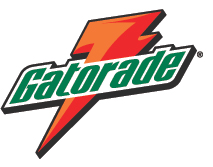What to do when faced with declining sales.
Sales in the “refreshment beverage” category are falling. The segment includes colas, energy and sports drinks, juices and bottled water. In 2009, for the second year in a row, sales were down. Down 3.1 percent according to a survey by Beverage Marketing Corp. This represents a steeper decline than was 2008. And there was one unusual statistic: 2009 saw a rare drop in sports drinks. The category created by Gatorade 45 years ago had been a reliable growth segment.
The category leader makes curious change.
Gatorade is a brand of flavored non-carbonated sports drinks manufactured by the Quaker Oats Company, now a division of PepsiCo.
As the category leader, it still controls about three-quarters of the market. But it seems parent PepsiCo has decided that after seeing its U.S. retail sales drop by almost 13 percent in 2009, and its market share decline by more than 2 percent, it is time for change. Management must do something. However, PepsiCo’s response is curious. The company suggested a major product re-development and decided on a product name change, from Gatorade to “G.” The new brand will offer 12 different drink versions.
They are abandoning the known and recognized Gatorade brand in favor of a new unknown brand. This will require a new massive advertising expenditure to educate and win consumers.
Leveraging brand equity.
It is natural for CEOs to constantly search for ways to leverage assets. A brand is an asset. And Gatorade has become a very powerful asset for PepsiCo providing a significant amount of equity.
A decision to leverage brand equity is, of course, always a good idea but deciding how exactly to do that should not be made without very thoughtful consideration. Especially in a category like this. Sugar-water products are entirely dependent on the strength of their brands. Tampering can be deadly.
I question the decision to fracture the Gatorade brand asset, breaking it up into 12 segments and worse, abandoning the brand name for a design concept of the letter “G” linked to descriptive words, and in other cases, not so descriptive numbers. The marketing challenge is to influence purchase decisions (in a positive way) and the name is one tool. To accomplish that with a new name requires a much greater advertising expense and will still dilute the equity built up over the years and confuse buyers. The confusion is an unintended result. And it creates a rare window of opportunity for competing sports drinks. Now the playing field is level. Expect competitors to now move aggressively to take advantage of this decision.
Removing a barrier to entry for competitors.
The very first step in achieving acceptance of a new product is developing awareness of the brand name and associating it with the category. Gatorade had achieved that enviable position. That represented a significant barrier to potential competitors. Now PepsiCo management has removed that obstacle. Competitors thank them.
In addition, they have taken on the burden and expense of communicating and trying to establish a leadership position in the category for the new brand, which is a 12-piece suite of products. This is a lot of products to be associated with one brand. It invites confusion and an undesirable pause in customer purchase decision making. The visual design of the 12 new products does coördinate their appearance, but additional advertising will be required to publicize the new look and make it recognizable.
Forfeiting an opportunity.
Finally, management has forfeited the opportunity to create and build new brand equities. This could have been achieved without abandoning the brand equity built over the years by Gatorade. Such a strategy would also have been a less expensive undertaking.
Sometimes the marketplace changes a bit. That doesn’t mean we necessarily abandon ship. Instead, we build additional new style ships and add them to the fleet. Tell us what you think.
Tags: asset, brand equity, Branding, business strategy, choosing a name, communications strategy, competitive advantage, influencing purchase decisions, marketing strategy, rebranding

When sales are declining, company’s search for ways to leverage assets. A brand is an asset. Leveraging a brand however, requires very thoughtful consideration and planning. Otherwise the company risks forfeiting brand equity built up over the years. Thanks for the thoughtful post!
Spot on with this write-up, I think companies too often, and typically, do not take naming as seriously as they should. Thanks for the insight.
This is a very important consideration for companies, thanks for your excellent post.